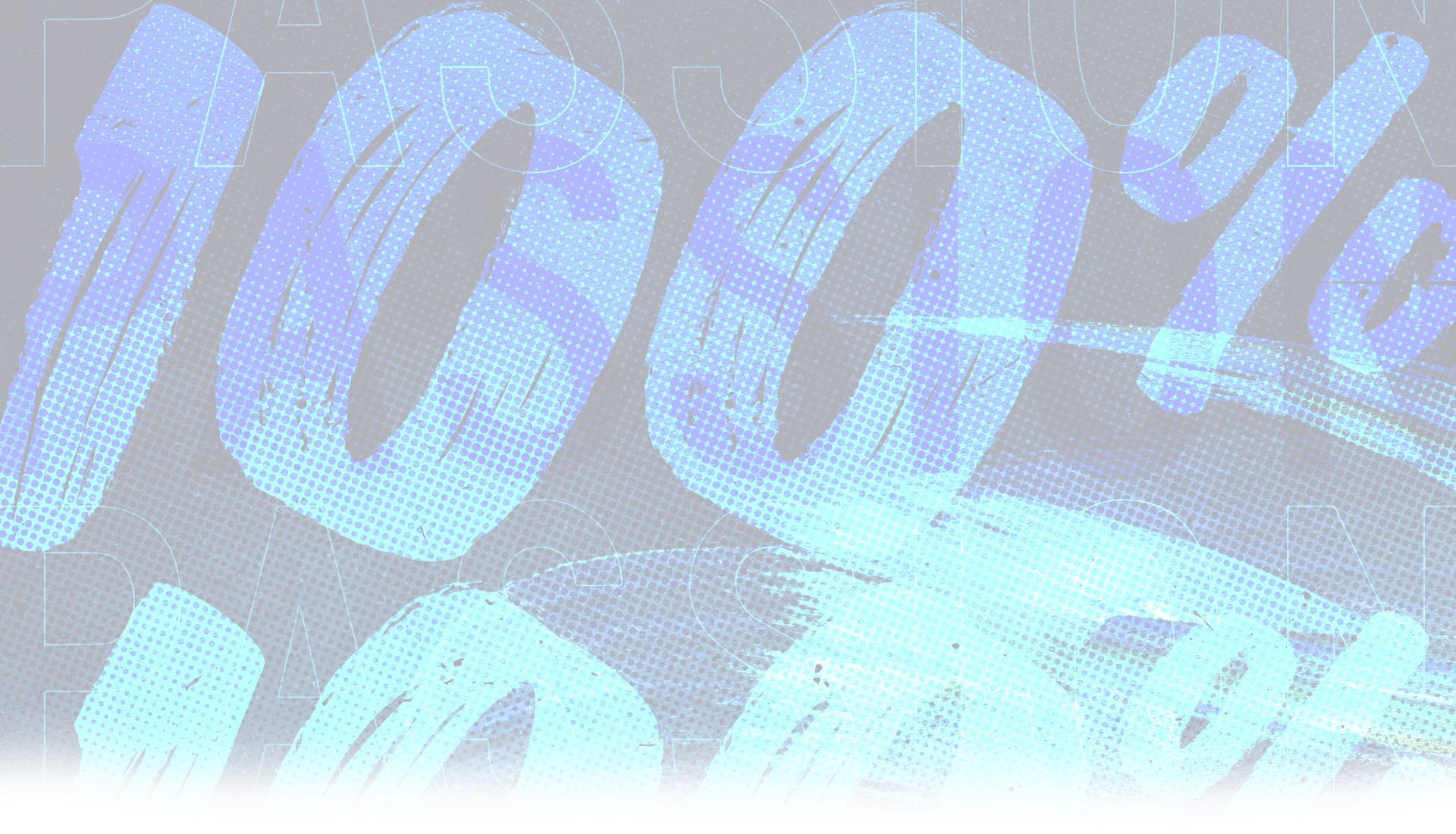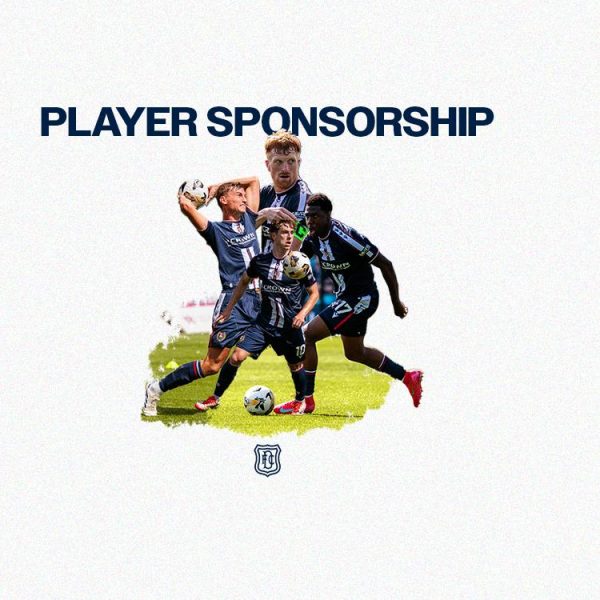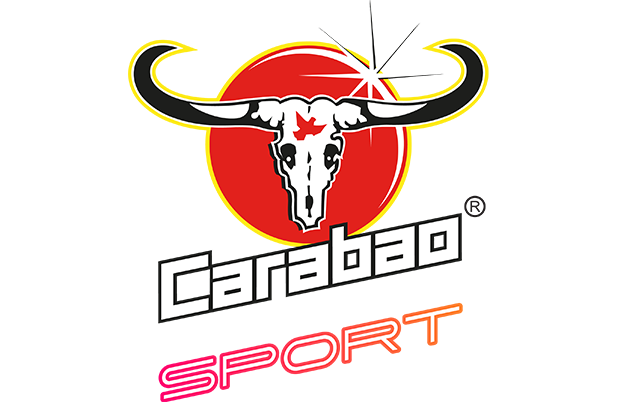On Saturday 27th October 1951 Dundee were to play in their first ever Scottish League Cup Final and their opponents Rangers, by contrast, considered the trophy almost their own, having won the Southern League Cup and the Scottish League Cup six times before.
The omens didn’t look good for The Dee as not only did Rangers have a great cup record but Dundee had a poor one at Hampden having never won not only a final there but also a semi-final. They had lost in Mount Florida on five occasions with Dundee’s only ever major final success taking place at Ibrox in 1910.
However, the Dundee players had a quiet confidence about them in the lead-up to the big day as they had not only defeated Rangers just before the semi-final but had also beaten Celtic 2-1 at Dens in the only match between the semi and the final. A crowd of 32,000, Dundee’s highest home league attendance of the season, gave the Dark Blues a good send off before the final and the players responded in kind with goals from George Christie and Johnny Pattillo to secure an Old Firm league double.
The fans had also snapped up cup final stand tickets in double quick time when they went on sale three days after the semi with prices being set at 21s, 10s 6d, 7s 6d and 5s. Applications were invited for Dundee’s allocation by post with money and a stamped addressed envelope to be sent to the secretary’s address in Reform Street and after an unprecedented demand for tickets they had to return some stamped envelopes with the cash intact and an apology.
Dundee had asked the Scottish League for extra tickets but were told that there were none left and in a press release the League said, “We are surprised by the demand which has been a bigger rush than for the Old Firm.” They also said that the official crowd for the Dundee v Motherwell semi-final had been bizarrely increased from the originally announced 25,000 to 31,000 which was significant as the revenues from both semis were pooled between the four participating clubs.
For those unfortunate enough not to get a stand ticket, there wasn’t really a problem as it was announced that the enclosures were pay at the gate and an estimated 30,000 Dundonians were expected to make the trip west. 10,000 of them were expected to travel on six football special trains on Saturday morning from Dundee West station to Glasgow leaving at 8.35am, 9.30am, 9.45am, 10.38am, 11.00am and 11.22am and at a price of 11s 6d for a return, tickets had to be booked in advance. (Six trains were to return home from Buchanan Street station between 6.00pm and 7.50pm with a provision being made in the event of extra time).
The League Cup Final really looked to have captured the imagination of the Dark Blue public and in Glasgow interest was high when the Scottish League put their allocation of stand tickets on sale on Tuesday 23rd October. They were swamped in the early part of the day and their tickets sold out by early evening. When Dundee learned about the sale, they complained to the League as they had asked for extra briefs and been told there were none and said that selling these in Glasgow meant most would have gone to Rangers’ fans. These protests however fell on deaf ears.
Dundee’s star man Billy Steel played in the win over Celtic on October 20th but was struggling with the ankle injury which would trouble him for the rest of his career. He trained on his own at Firhill on the Monday and then declared himself fit for the final and there was a collective sigh of relief at Dens which Billy could probably have heard from Maryhill.
After changing the players’ routine in the build-up to Brockville in 1949 when Dundee lost the League title on the final day, Anderson decided to have no special training at Dens and to just have a week of normal routine with the only change being that the squad were to travel through to Glasgow on Friday afternoon on the 3pm train.
Anderson also arranged for a special carriage for the players to be added to the homeward bound train on Saturday because they had had to travel back in the guard’s van after the semi-final. The players’ wives were also officially invited to attend but would be travelling through on their own on Saturday morning.
Anderson was a master of man-management, a master of publicity and a master also of pre-match psychology with the opposition, forty or fifty years before Sir Alex Ferguson was attributed to have invented such a thing and on the eve of the final, he was up to his tricks with Rangers in an attempt to gain some sort of advantage.
On Wednesday, Anderson was on the phone to the Scottish League saying that he was willing for Rangers to play in their customary light blue with Dundee in their change colours of white and the League said they would pass his suggestion on to Ibrox. The rule in the League Cup was that if the colours of both teams clashed, then both teams had to change but Rangers were delighted to accept Dundee’s suggestion and announced their gratitude to Mr. Anderson and Dundee. They also said that they would play in a popular light blue shirt with two bands of red across the middle that they last wore in a cup tie against Raith Rovers two years before.
Rangers manager Bill Struth personally phoned Anderson to thank him and also asked him if the Dens Park chief could return any unsold stand tickets. “Ours sold out long before yours,” Anderson told him, “But you can have one of mine for a guinea if you like?”
Anderson knew exactly what he was doing as he knew it would be a popular move with both Rangers and Dundee fans alike. There was a glamour to the light blue jerseys which made Rangers a big appeal but he also thought that Dundee looked slick in their white shirts with a dark blue collar and cuffs and that his players would stand out on front of the huge anticipated crowd at Hampden.
In the build-up, the players were in demand for interviews with newspapers and in The Scotsman Tommy Gallacher said that he was looking to make his name at Hampden just as his father had done against The Dee in the Scottish Cup Final in 1925. Patsy Gallacher got the winner that day in a 2-1 win and they also interviewed Dundee’s goalscorer that day, Davie McLean, who said that Gallacher “Makes the mazy runs like his father used to do,” and was sure he would follow in his father’s cup winning footsteps.
Billy Steel told The Evening Telegraph that he was desperate to win as he’d never won a cup final before while Jimmy Toner said he was hoping to add a League Cup winners’ medal to his Scottish Junior Cup one and there was no doubt that the Dundee players were extremely motivated.
The match referee for the final was one of Scotland’s foremost officials Jack Mowat. Mowat was a first class referee from 1946 until 1960 when he was in charge of the famous Real Madrid v Eintracht Frankfurt European Cup Final at Hampden in his final game. Born in Rutherglen on April 1st 1908, Mowat would referee one match at the 1958 World Cup Finals as well as seven Scottish Cup finals and the 1951 Scottish League Cup final, his first.
Dundee’s line-up for the big day was (with position in brackets) : Bill Brown (gk), Gerry Follon (rb), Jack Cowan (lb), Tommy Gallacher (rh), Doug Cowie (ch), Alfie Boyd (lh) capt., Jimmy Toner (rw), Johnny Pattillo (ir), Bobby Flavell (cf), Billy Steel (il), George Christie (lw).
The Rangers side, which included eight full internationalist, was: Bobby Brown (gk), George Young (rb) capt., John Little (lb), Ian McColl (rh), Willie Woodburn (ch), Sammy Cox (lh), Willie Waddell (rw), Willie Findlay (ir), Willie Thornton (cf), Joe Johnson (il), Eddie Rutherford (lw).
George Young won the toss and much to the relief of Dens skipper Alfie Boyd, chose to attack the traditional ‘Rangers end’ (the covered west enclosure to the left of the old South Stand as you look at the pitch) – relief because Dundee had kicked that way in the opening half in their two unsuccessful semi-finals in season 1948/49.
Dundee therefore kicked off and in the opening fifteen minutes were in control with Billy Steel spraying passes all over the field. Dundee were well on top with the line of ‘wee fellas’ that the Dundee forward line were nicknamed, having the towering Rangers defence in a whirl. The Dens Park forward line was probably the lightest in the country but in skill, nimbleness, fight and poise they often showed they had few equals and they started the cup final in great fettle.
Steel at times was lying very deep but was effective in playing long through passes to Christie that had McColl and Young repeatedly worried. On the other wing, the twists and turns of Flavell, with his precise flicks, were a constant worry to Woodburn, while Pattillo’s roaming and sudden bursts and Toner’s neat ball control and occasional rambles into the middle were a source of delight to the Dundee fans and kept the Light Blues’ defence on edge.
It all looked to be going to plan and only to be a matter of time until Dundee scored but as is so often the case in football the opposite happened when Willie Findlay put Rangers ahead on twenty-one minutes against the run of play.
The goal really knocked Dundee’s stride and the men from Govan started to take command. Alfie Boyd had played as almost a second centre-half and with Billy Steel still lying deep, Dundee’s long ball tactics made little impression on Rangers’ ‘Iron Curtain’ defence. The second phase of the first half saw Dundee have a tendency to sky the ball forward which suited the hefty Rangers back line. At half time The Dee regrouped and discussed placing an emphasis on short passing along the ground to draw out the Ibrox defence.
Immediately this philosophy paid dividends as Dundee drew level two minutes into the second half when the ever-alert Flavell fired Christie’s cross into the net despite the best efforts of Bobby Brown.
From now on Dundee were terrific with their mid-line dominant. There was Tommy Gallacher holding the ball, beating his man and pushing through the perfect ground passes; there was Doug Cowie as firm as a rock, thwarting Thornton at every turn and Alfie Boyd, the inspired skipper, back in defence when required and putting a check on Willie Waddell when needed, whom Jack Cowan was finding quite a handful.
Cowan in general had a tough afternoon saying post match that he, “Found Waddell six times faster that the last time I played him.” The Canadian however played the Rangers flier with grit, determination and courage and was on hand to clear off the line at 1-1. He played his part in going into attack at the right time and it was his clearance which led to Dundee’s second.
On sixty-nine minutes, Cowan cleared the ball from the box and the ball went to Flavell, who passed it on with a dainty flick. Johnny Pattillo came steaming in and he hit Bobby’s pass on the run; a beauty which flew into the Rangers’ net to give The Dee a 2-1 lead.
Rangers tried to push on and rescue the tie but they found Bill Brown in tremendous form whom The Courier said “rose to the occasion like a veteran.” Gerry Follon also rose to the occasion after a shaky start and prevented the sturdy Johnson and the eager Rutherford from getting into their stride and as the game wore on, it looked like the Dark Blues’ might just hold on for victory.
With two minutes left however, disaster struck when Rangers drew level in controversial circumstances. George Young took a free kick just inside the Dundee half and floated it into the Dark Blues’ box and when Bill Brown went up to catch it, he was nudged by Willie Thornton and the ball floated into the net.
Dundee were furious and Brown chased Mowat shouting, “He pushed me ref, he pushed me!” while Alfie Boyd also protested, but the referee was well-placed and paid no heed to the appeals.
There was some doubt as to whether the future Dundee boss Thornton had touched it or whether it was George Young’s goal but Rangers didn’t care as it looked like they had forced extra time.
From the restart however Billy Steel was fouled just inside the Rangers’ half and Dundee had one last chance to grab a winner. With just thirty seconds remaining, Steel placed the ball on the ground, preparing to take the kick and as he did so, Alfie Boyd sped past him saying, “I’m going to the right of the goal so try to chip the ball over to me.”
“I’ll place it on your head, Alfie,” Steel replied as he was teeing up the ball and when he took the free kick, he did exactly that, dropping it to Boyd eight yards out. Boyd leapt up, closed his eyes and headed it for all it was worth and when he opened his eyes the ball was in the back of the net to win the League Cup for Dundee.
Alfie was swamped by his joyous team mates, while Steel just gave his skipper a wink and when Rangers re-started the match, the final whistle immediately blew and Dundee had won the match 3-2.
It was one of the most dramatic finishes ever seen in a Hampden final and the 30,000 Dundonians in the 92,325 crowd, many of whom had gathered on the terracing below the North Stand, let out a tremendous roar when the game was won. Dundee were the League Cup winners for the first time and a new generation of Dees had finally seen the Dark Blues win some silverware after a forty-one year wait.
A delirious George Anderson ran onto the pitch and congratulated each and every one of the victorious Dark Blues before Scottish League President John McMahon presented the beautiful trophy to Alfie Boyd on the pitch. Boyd was lifted up by Tommy Gallacher and Billy Steel and the skipper held aloft the glittering trophy for all to see.
The Dundee party got a great send-off from Glasgow where thousands packed Buchanan Street Station and the crowds were so big that the wives of Billy Steel and Bobby Flavell got separated from the rest of the group. The police had to force a way through for them and when they arrived at the train, Mrs Flavell had a sprained ankle and damaged nylons, for which George Anderson promised to buy her a new pair.
Alfie Boyd, who was carrying the cup, was carried shoulder high with Steel, Flavell, Follon and Brown also hoisted aloft and when Boyd got into the train he continued to wave the trophy at the supporters through the carriage window. The train eventually got underway just after 6pm with the platform still thronging with Dees, but it was nothing to the number of fans they would encounter upon returning to Juteopolis.
Ninety minutes before the train was due into Dundee, the crowds began to gather outside Dundee West Station, the site of the modern day city centre station. Forty policemen were reinforced with nightshift men and railway police who tried to keep the station clear and by a quirk of fate the policeman on duty at the main door was Mr James Golden of Lochee, who was the same policeman guarding the same door when Dundee returned with the Scottish Cup in 1910.
The supporters who arrived on the players’ train made a cheering lane through which Alfie Boyd, still carrying the cup, had to force his way to Yeaman Shore where they met a bus to take them on a tour of the city. The bus was filled with players and their wives and officials of the club, including managing-director Anderson and Chairman James Gellatly and Boyd and others climbed on top of the roof to take the acclaim of the city.
The Hampden roar came to Dundee as the bus, preceded by a police wireless car, moved off towards South Union Street. Boyd and his team mates, perched dangerously on the roof, holding the trophy up high, were cheered as the bus made its way at a snail’s pace round Whitehall Crescent into Dock Street and back towards South Union Street.
Policemen were swept aside in the melee as the bus crawled up Union Street to the High Street and traffic in the High Street and Reform Street came to a standstill as the bus drove round the City Square. There were incredible scenes in the city centre with an estimated 20,000 out to hail their heroes and people were held up in ten trams while cars were abandoned and stranded in the middle of the road.
Fifteen policemen surrounded the bus until the crowd thinned out before it drove to the chairman’s house in West Ferry, where the cup was once again filled with champagne. Mr Gellatly thanked the team for their great performance while Anderson said he had a big ‘thank you’ to say to the players and Alfie Boyd responded for the players saying that they were all proud to play for Dundee and wanted to thank Anderson and particularly Bennett and Smith, the trainers, for getting them so fit.
After the players’ late supper, Johnny Pattillo drove Anderson and his party back to Aberdeen in director Jack Swadel’s car before returning the car in the morning when he and Alfie Boyd headed north again in his own car for a training session with kids in the Granite City on Sunday night.
It was a night of revelry in Dundee reminiscent of V.E. Day six years before and not seen in footballing terms for over four decades. Many public houses ignored their closing times to which the police turned a blind eye, with Alfie Boyd, Billy Steel, George Anderson & Co. the toast of the city. It was in a night of never-to-be forgotten celebration as Dundee hailed their first ever Hampden Heroes.
Article by Kenny Ross














